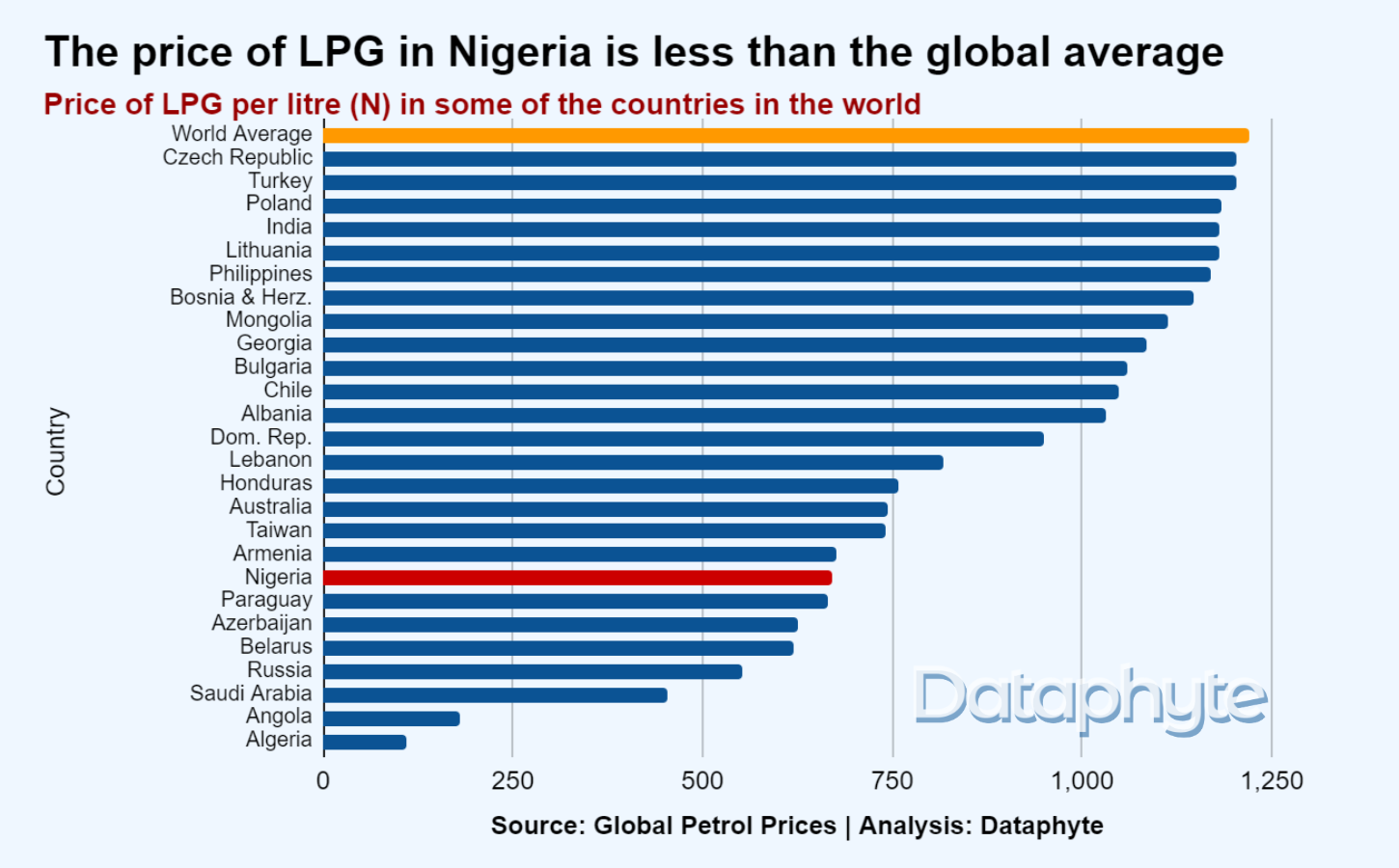How Pricey LPG is Shaping Health and the Environment in Nigeria
+Maintaining Clean Cooking with the Rising Cost of LPG
The price of Liquefied Petroleum Gas (LPG) in September 2024 has reached its highest level compared to any September in the last five years according to the National Bureau of Statistics (NBS) report. Households all around Nigeria are being impacted by this sharp price rise.
More than merely a financial hardship, the rising cost of LPG poses serious hazards to human health and the environment. With cooking gas prices rising beyond the means of many Nigerians, there's a greater chance that households will resort to less sustainable, less expensive options like kerosene, firewood or charcoal.
These conventional fuels expose people to dangerous air pollution, which can cause respiratory ailments and other health issues, in addition to contributing to deforestation and environmental damage.
The broader implication of this trend threatens Nigeria’s progress towards achieving Sustainable Development Goal 7 (SDG 7), which aims to ensure universal access to affordable, reliable, sustainable and modern energy by 2030.
When compared to September 2023, the cost of LPG has increased by an alarming 60% annually, and it has increased by about 4% since August 2024.
Data shows that the price of LPG in Nigeria however is below the world average.
Richer nations often have higher pricing, whereas poorer nations and those that produce and export natural gas typically have far lower prices. The varying LPG taxes and subsidies are the reason for the pricing differences in countries.
Unchecked LPG price increases will worsen energy poverty in Nigeria by denying low-income households access to clean energy sources and accelerating environmental deterioration.
Modern and clean cooking fuels are fuels with very low levels of polluting emissions when burned. Examples include biogas, LPG, electricity, ethanol, natural gas, and solar power, known collectively as(BLEENS). Pellets used in specialised biomass stoves can also be a clean fuel.
Currently, only 25% of Nigerians have access to clean cooking like LPG, it also shows that 75% of people still cook using dangerous, conventional methods like kerosene, charcoal, or firewood.
The expansion of access to clean cooking fuels and technology is significantly influenced by the pricing of LPG.
The rate at which access to clean cooking technology is expanding is negatively correlated with LPG costs, according to data from the International Energy Agency (IEA).
Access increased more significantly between 2018 and 2020 when LPG costs were lower or more steady. However, the rate of access expansion decreased in 2021 and 2022 because of the spike in LPG costs.
As the shift in access to clean cooking affects the planet and the achievement of SDG7, there are also serious health consequences, particularly for women and children who are most exposed to indoor air pollution.
Hazardous pollutants such as particulate matter (PM2.5), carbon monoxide (CO), and volatile organic compounds (VOCs) are released by conventional fuels like firewood, charcoal, and kerosene. Indoors, these pollutants build up, particularly in areas with inadequate ventilation.
The most serious effects are respiratory disorders, heart difficulties, cancer, eye disorders, burn injuries, and poor health outcomes for maternal and child health.
Maintaining Clean Cooking with the Rising Cost of LPG
By employing fuel-saving techniques, considering other cooking alternatives, and practicing proactive consumption management, clean cooking may continue even with the rise in LPG.
Investigating alternatives such as biogas, solar cookers, electric cooking, and buying energy-efficient stoves for pressure cookers can also help reduce reliance on LPG; however, avoiding hazardous alternatives like firewood is best for your health.
Finally, setting up an LPG budget ensures better money management, allowing families to save for their next cylinder purchase without worry.
All Nigerians must continue to have access to cleaner, safer energy sources, which requires a determined commitment to stabilise LPG prices. This is crucial for the nation's long-term commitment to environmental sustainability as well as public health.
According to reports, achieving universal access to clean cooking solutions could prevent up to 1.5 billion tonnes of CO2 emissions by 2030, including 900 million tonnes from Africa alone. Clean cooking is not just a health measure but a crucial step toward meeting global environmental goals.









